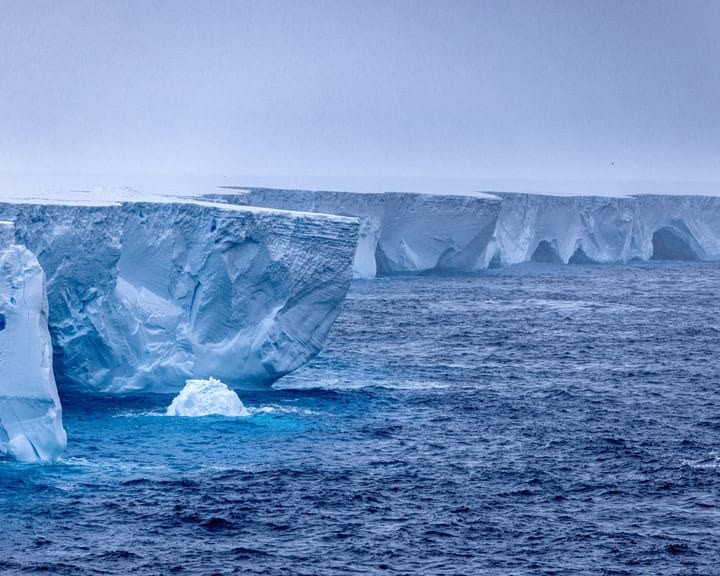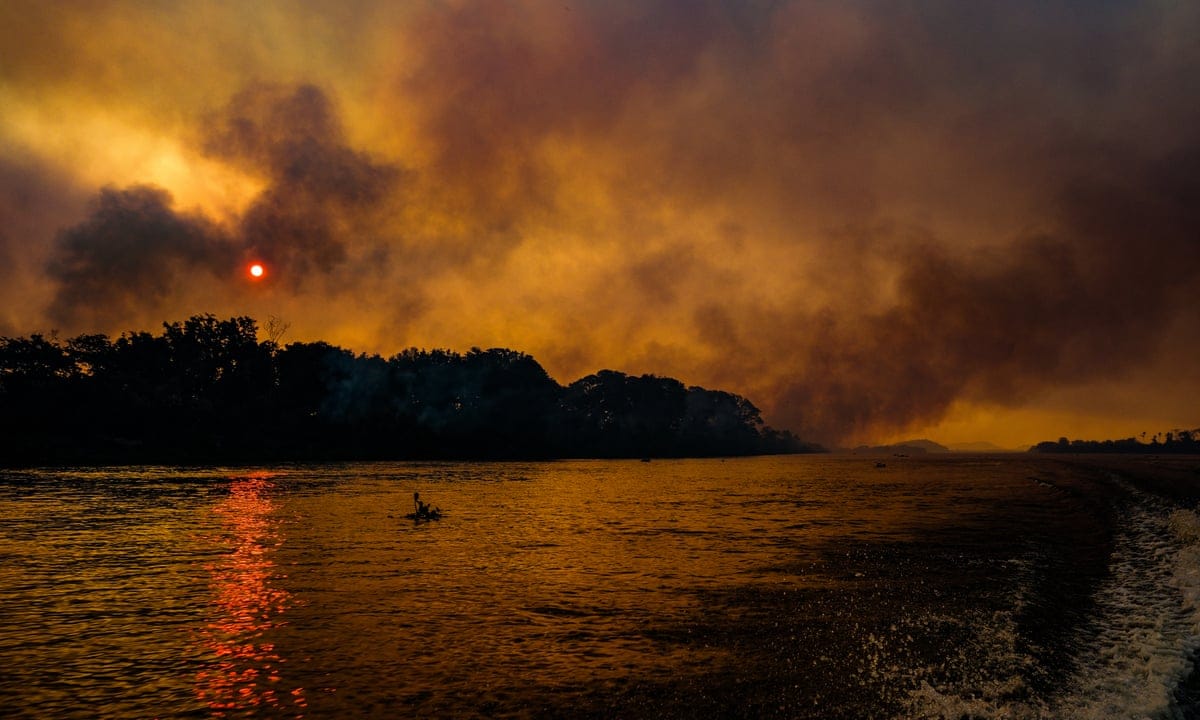Perched atop blackened trees, howler monkeys surveyed the charred remains around them. A flock of emus wandered disorientedly in search of water. The skeletons of alligators lay lifeless and blackened.
The world's largest wetland and one of Earth's most diverse ecosystems, known as the Pantanal, was ablaze. Immense areas resembled post-battle zones, with lush green vegetation now reduced to white ash, while debris rained from above.
Over 760,000 hectares (1.85 million acres) of the Pantanal had succumbed to wildfires by June 24, a nearly one-third increase in size since last year's fires. The fires continued to ravage this vital ecosystem, which spans across Brazil, Bolivia, and Paraguay, threatening countless species with extinction and exacerbating climate change.
The Pantanal serves as a crucial habitat for numerous wildlife species like jaguars, capybaras, giant otters, and scores of bird species. It also acts as a vital carbon sink, storing approximately 20 to 30 percent of the terrestrial carbon despite covering only 5-8% of Earth's land surface. In the fires of May 2020 alone, an estimated 115 million metric tons (252 million tons) of CO2 were released into the atmosphere.
Traditionally, indigenous tribes and local ranchers have used fire as a tool to clear land for agriculture and cattle grazing. However, with climate change intensifying drought conditions and decreasing water availability in this wetland ecosystem (which has lost 68% of its original water coverage since the 1980s), human-induced wildfires have become increasingly destructive to the Pantanal's delicate balance.
The Brazilian government, under President Jair Bolsonaro, faced criticism for what some saw as inadequate fire prevention efforts and poor management of national parks. In response, authorities declared an emergency situation in Mato Grosso do Sul state on June 24 and expanded the wildfire taskforce. Additionally, airbornas were dispatched to drop water onto the flames in late May.
Yet, despite these efforts, fires continued raging across the Pantanal, consuming precious land and threatening its biodiversity. Cabo Sena, a firefighter who works tirelessly to control wildfires, shared his experience: "We extinguish some of the flames temporarily, but then it just reignites within 24 hours."
Lucineia Oliveira, a resident whose family narrowly escaped a devastating fire in 2021 that consumed her home and endangered their lives, fears for the Pantanal's future. "Every year is worse; our beautiful wetland ecosystem, teeming with life, is burning away," she said.
As these destructive fires continue to devastate the Pantanal, the urgent need for greater investment in fire prevention and management becomes increasingly apparent. Without immediate action, this crucial habitat and its diverse array of species will face an uncertain future, further exacerbating climate change and environmental degradation worldwide.
Read next

"Giant iceberg disintegrates four decades later: A rare survival story"
Gigantic Antarctic Iceberg Nears Disintegration After Nearly Four Decades
Nearly 40 years after separating from Antarctica, a massive iceberg—one of the oldest and largest ever recorded—is rapidly breaking apart in warmer waters and could vanish entirely in weeks.
Earlier this year, the iceberg, called A23a, weighed just under

"Malawi's pioneering climbers push limits and trust in self to scale new heights"
Emmanuel Jekete was attending secondary school in 2019 when his mother’s employer, a Canadian, invited him to try a climbing wall in his garden in Lilongwe, Malawi’s capital. Jekete initially found it simple to scale the plastic holds on the vertical wooden board. But when the wall extended

"Legs in agony as crowds flock to Hackney for litter-picking championship"
Equipped with gloves, tongs, and trash bags, dozens of determined volunteers will gather at Hackney Marshes in east London this weekend.
The activity, known as Spogomi, originates from Japan, where it was developed in 2008 as a competitive way to encourage public space cleanup. It has since spread to schools

